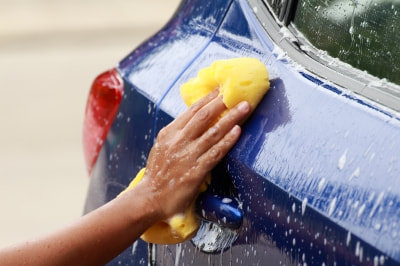When you learn to sell a car, you are familiar with many skills. No doubt you will learn the importance of negotiating skills in car sales, as it is one of the basic skills you can use on your first day at work!

Depending on the size of the car sales company you work in, you'll find that many different types of negotiations can be used. In large companies with many different departments, you may only need to use vehicle price negotiation, although in many large companies of this type, prices are fixed and private. Negotiate.
Know how to sell a car
In many cases, you don't need car sales skills: you're a retailer who sells products at a fixed price. He sold it and then another person took care of the service agreement, insurance and payment terms. However, this is not the case for most car sales outlets: many are small businesses or franchises that employ limited sales personnel who are responsible for the entire sales process from vehicle sales to signature. form.
If he can sell cars in a way that customers think he gets good products for the price he pays, he's doing well. You and your customers can agree on terms without having to worry about the pressures often encountered in car sales. You must know how to control negotiations from the start and streamline the entire process for you and your customers. This will bring more money to your employer, which in turn will bring you more money.
Car sales negotiation skills
Sometimes you meet someone who is determined to "get it" from you during negotiations. At regular car sales outlets, sales staff is responsible for negotiating with potential customers on many aspects of the car sales industry. among them:
• The price of the vehicle.
• Automatically empty or include detailed information.
• Free home delivery for buyers.
• Exchange old cars and reduce prices by swapping.
• Includes insurance for the first year or 6 months.
• Free windshield coding
• The best financing options.
there are more. Sometimes such requirements can become very demanding and intense. You must learn to reject and deactivate them without losing sales. In fact, most of the additional features described above can be provided, but they are optional. Proper training will help you determine when potential customers are close to a purchase and what is needed to drive them to a decision.
Unless your employer provides “decisive factors” in advance, don't put additional proposals like these on your agenda. No good seller will reject a $ 5,000 sale for a $ 40 cleaning! However, you should know how to reject such "requests" without disturbing your customers. Car sales courses can teach you how to do it.
Learn to sell a car with good negotiation skills
Negotiations include evaluating potential customers to understand what they are looking for and how much they like the vehicle. A little psychological, and the better your training, the more likely you are to make the right decision.
So where do you learn these negotiation skills? The usual way of working is work, which means that you are natural or make mistakes that may delay your career. Why not avoid all these hassles and receive professional training on how to sell cars and conduct proper negotiations?
Make sure that if you encounter a professional negotiator who is trying to buy a large number of used cars, you should leave more money than you should provide. Give it to you and you will become a professional negotiator. Then you can be sure to get the best price for your boss, which will do wonders for your promotion opportunity!

 Log in with Facebook
Log in with Facebook 








